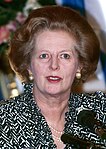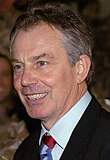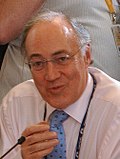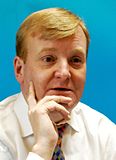User:Arandompersonlol/sandbox/politics
wow. you've made it here. but anyways, welcome.
basically what i do here is to play with some "alternate history politics", you know, shit like that.
but yeah, enjoy.
notes:
- all blue links will redirect to canon person/event
- all refs/citations also redirect to canon site
- WIP = "unfinished" (common sense)
No Falklands War
[edit]1984 United Kingdom general election
[edit]WIP
| |||||||||||||||||||||||||||||||||||||||||||||||||||||
All 650 seats in the House of Commons 326 seats needed for a majority | |||||||||||||||||||||||||||||||||||||||||||||||||||||
|---|---|---|---|---|---|---|---|---|---|---|---|---|---|---|---|---|---|---|---|---|---|---|---|---|---|---|---|---|---|---|---|---|---|---|---|---|---|---|---|---|---|---|---|---|---|---|---|---|---|---|---|---|---|
| Opinion polls | |||||||||||||||||||||||||||||||||||||||||||||||||||||
| Turnout | 72.7%, | ||||||||||||||||||||||||||||||||||||||||||||||||||||
| |||||||||||||||||||||||||||||||||||||||||||||||||||||
| |||||||||||||||||||||||||||||||||||||||||||||||||||||
The 1984 United Kingdom general election was held on Thursday 7 June 1984, to elect 650 members to the House of Commons. The election resulted in a hung parliament and was considered to have the lowest government minority since December 1910, with the Conservatives falling down to 268, 58 short of overall majority government from the 43-seat majority they once enjoyed in 1979. The Labour Party lost seats at a much smaller scale from 269 seats to 261, while the SDP-Liberal Alliance gained the most seats from just 11 to 95, the most for a third party since 1923.
Thatcher's first term as Prime Minister had not been an easy time.[1] Unemployment increased during the first three years of her premiership and the economy went through a recession. However, a last-minute economic growth during the campaign made a partial recovery of her personal popularity.
By the time Parliament had dissolved in May 1984, opinion polls pointed a three-way tie and sometimes the Conservatives trailed in the polls, but the last-minute economic recovery had led the Conservatives back in leading the polls. The resulting win earned the Conservatives their smallest government of the post-war era.[2]
The Labour Party had been led by Michael Foot since the resignation of former Prime Minister James Callaghan in 1980, and its new policies were considered more left-wing than usual.[2][3] Several "moderate" Labour MPs had defected from the party to form the Social Democratic Party (SDP), which then formed the SDP–Liberal Alliance with the existing Liberal Party.
Both parties had 30% of the vote, the first and only time in post-war record, as both Conservatives and Labour vote fell by 3 million, while the Alliance gained more than 5 million, just less than a million of out-polling both the two major parties. Although being a distant third, the Alliance had a monumental victory and the biggest party kickstart since post-war records began. The Liberals argued that a proportional electoral system would have given them a more representative number of MPs. Changing the electoral system had been a long-running campaign plank of the Liberal Party and would later be adopted by its successor, the Liberal Democrats.
When polls declared that a hung parliament was imminent, coalition talks between both the Alliance and the Conservatives and the Labour and the Alliance began a week into the campaign. As a coalition was less likely to form between the Alliance and the Labour Party, it was more likely that a coalition might form between the Alliance and the Conservatives. However, the talks collapsed when some of the SDP members backed down about the coalition, and so no one was able to form a coalition government. [2] The major factor surrounding this may have been due to the hardline policies both the major parties have taken. When the coalition talks completely collapsed, the Conservatives asked the Ulster Unionist Party for a confidence-and-supply agreement, to which they accepted.
The election night was broadcast live on the BBC and was presented by David Dimbleby, Sir Robin Day and Peter Snow.[4] It was also broadcast on ITV and presented by Alastair Burnet, Peter Sissons and Martyn Lewis.
Two future leaders of the Labour Party (Tony Blair, Gordon Brown) were first elected during this election; both of whom went on to hold the office of the Prime Minister.
As the likes of Blair and Brown, a string of prominent members of parliament stepped aside or lost their seats. Former Labour Prime Minister Harold Wilson stood down from parliament after 38 years, as well as Speaker of the House of Commons and former Labour cabinet minister George Thomas also departed from parliament at this election. In addition, two future Leaders of the Liberal Democrats were first elected—Paddy Ashdown and Charles Kennedy. Michael Howard, who later served the Conservatives as Home Secretary in government and as party leader in opposition and subsequently Prime Minister, was also elected to parliament in 1983.
1989 United Kingdom general election
[edit]WIP
| |||||||||||||||||||||||||||||||||||||||||||||||||
All 650 seats in the House of Commons 326 seats needed for a majority | |||||||||||||||||||||||||||||||||||||||||||||||||
|---|---|---|---|---|---|---|---|---|---|---|---|---|---|---|---|---|---|---|---|---|---|---|---|---|---|---|---|---|---|---|---|---|---|---|---|---|---|---|---|---|---|---|---|---|---|---|---|---|---|
| Opinion polls | |||||||||||||||||||||||||||||||||||||||||||||||||
| Turnout | 75.3%, | ||||||||||||||||||||||||||||||||||||||||||||||||
| |||||||||||||||||||||||||||||||||||||||||||||||||
 Composition of the House of Commons after the election | |||||||||||||||||||||||||||||||||||||||||||||||||
| |||||||||||||||||||||||||||||||||||||||||||||||||
The 1989 United Kingdom general election was held on Thursday, 8 June 1989, to elect 650 members to the House of Commons. The Labour Party turned out as the largest party in the House of Commons, but it was 16 seats short for a majority, therefore producing a hung parliament for the second consecutive time.
The Conservatives ran a campaign focusing on lower taxes, a strong economy and strong defence. However, the Lawson boom of 1989 immediately changed confidence over the Conservative leadership as inflation increased at a staggering rate of 6%, prompting the Conservatives to commit on an immediate economic recovery.
The Labour Party, led by Neil Kinnock following Michael Foot's resignation in the immediate aftermath of a divisive 1985 leadership election, was slowly moving towards a more centrist policy platform following the promulgation of a left-wing one under its previous leader Michael Foot. The main aim of the Labour Party was simply to re-establish itself as the main progressive centre-left alternative to the Conservatives, after the rise of the Social Democratic Party (SDP) forced Labour onto the defensive. Indeed, the Labour Party succeeded in doing so at this general election, even more so as being the largest party in the parliament. The Alliance between the SDP and the Liberal Party was renewed but co-leaders David Owen and David Steel could not agree whether to support either major party in the event of a hung parliament.
Although there were only small changes overall, with the Conservatives only just losing by 10 seats, it cost them the election. The Labour Party, on the other hand, gained only 15 seats, with both sides often gaining and losing seats.
The election was a disappointment for the Alliance, which saw its vote share fall and suffered a net loss of six seats. This led to the two parties merging completely soon afterwards to become the Liberal Democrats. In Northern Ireland, the main unionist parties maintained their alliance in opposition to the Anglo-Irish Agreement, however the Ulster Unionists (UUP) lost one seat to the Social Democratic and Labour Party (SDLP). This loss came from former Cabinet Minister, Enoch Powell; famous for his stance against immigration and formerly a Conservative.
The election night was covered live on the BBC and presented by David Dimbleby, Peter Snow and Sir Robin Day.[5] It was also broadcast on ITV and presented by Sir Alastair Burnet, Peter Sissons and Alastair Stewart.
The 1987 general election saw the election of the first Black Members of Parliament: Diane Abbott, Paul Boateng and Bernie Grant, all as representatives for the Labour Party. Other newcomers included future Cabinet member David Blunkett, future SNP Leader Alex Salmond and John Redwood. MPs leaving the House of Commons as a result of this election included former Labour Prime Minister James Callaghan, Keith Joseph, Jim Prior, Ian Mikardo, former Health Minister Enoch Powell (who had defected to the UUP in Northern Ireland in 1974 after from the Conservatives) and Clement Freud.
- ^ "Baroness Margaret Thatcher", gov.uk, retrieved 2 July 2018
- ^ a b c "Historic election in decades", BBC News, 5 April 2005, retrieved 22 March 2015
- ^ Vaidyanathan, Rajini (4 March 2010), "Michael Foot: What did the 'longest suicide note' say?", BBC News, retrieved 22 March 2015
- ^ Election 1984 – Part 1 on YouTube
- ^ BBC Election 1989 coverage on YouTube
iraqi_freedom: Not Found
[edit]2005 United Kingdom general election
[edit]WIP
| |||||||||||||||||||||||||||||||||||||||||||||||||||||
All 646 seats to the House of Commons 324 seats needed for a majority | |||||||||||||||||||||||||||||||||||||||||||||||||||||
|---|---|---|---|---|---|---|---|---|---|---|---|---|---|---|---|---|---|---|---|---|---|---|---|---|---|---|---|---|---|---|---|---|---|---|---|---|---|---|---|---|---|---|---|---|---|---|---|---|---|---|---|---|---|
| Opinion polls | |||||||||||||||||||||||||||||||||||||||||||||||||||||
| Turnout | 61.4% ( | ||||||||||||||||||||||||||||||||||||||||||||||||||||
| |||||||||||||||||||||||||||||||||||||||||||||||||||||
| |||||||||||||||||||||||||||||||||||||||||||||||||||||
Cite error: There are <ref group=lower-alpha> tags or {{efn}} templates on this page, but the references will not show without a {{reflist|group=lower-alpha}} template or {{notelist}} template (see the help page).











